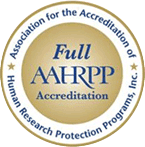Index
Message from OVPR: Mask and Social Distancing Requirements Updated
New Training Requirement for Student Principal Investigators
Reminder: Pre-Grant Submission Survey for Single IRB Model
IRB Advisor Newsletter, April 2021
In the News
Message from OVPR: Mask and Social Distancing Requirements Updated
Office of the Vice President for Research
The following message is a May 19, 2021 **message rebroadcast** from the Office of the Vice President for Research
Many of you may have seen the university’s updated COVID-19-related guidance on masks and social distancing this morning.
While there are some exceptions, effective on Thursday, May 20, masks and social distancing requirements will be lifted across the University of Iowa campus. This will include all research areas, with a couple caveats:
- Research taking place in campus areas that continue to require masks and social distancing, including UI Health Care, must follow those guidelines.
- Those who have not been vaccinated against COVID-19 and/or who are experiencing any symptoms are strongly encouraged to work remotely if possible and otherwise wear masks indoors when working in close proximity to others. It is also appropriate to ask research subjects, guests, and others coming into your research space to do the same.
- There may be other restrictions or limitations on resumption of on-campus activities beyond COVID-19. Refer to your particular unit’s return to campus plan for guidance or contact your associate dean for research.
OVPR’s COVID-19 information page continues to offer the latest guidance for university research. Thank you for your ongoing cooperation.
New Training Requirement for Student Principal Investigators
By Kelly O'Berry, BS, CIP
In an ongoing effort to improve the quality of initial HawkIRB submissions and the efficiency of the IRB review process, the Human Subjects Office (HSO) announces a new training requirement for student Principal Investigators (PIs). Beginning in the 2021 fall academic semester, graduate and undergraduate students serving as PIs will be required to complete HawkIRB training prior to submitting a HawkIRB New Project form for IRB-01 (Biomedical IRB) or IRB-02 (Social/Behavioral IRB).
This new training requirement was established in consultation with the Graduate College and the Office of the Vice President for Research and is consistent with the scope of a UI student’s educational experience. Serving as the PI is a learning opportunity for student researchers. It is often their first chance to design a research project that involves human participants. It is also their first time preparing an eResearch application in the HawkIRB system.
The purpose of this new training requirement is to help students prepare more complete HawkIRB applications that go through the IRB review process more smoothly. Faculty and staff are encouraged, but not required, to also complete this training. UI policy currently requires student PIs to have a faculty advisor who assists with study design, preparing the IRB application, and oversight of the project from start to finish. It may reduce the burden on faculty advisors, although they remain responsible for providing guidance and oversight of the research. Since the IRB reviews applications in the order they are received, this training requirement should benefit not only the student PIs themselves but should also shorten the IRB review time for all researchers. Please note, the new training requirement is not required for the submission of a Human Subjects Research Determination (HSRD) form, only the new project application form.
The Training Requirement
Student PIs must attend a two-part training on the HawkIRB New Project Form, a three-hour requirement. Students can attend the live/Zoom trainings OR view recorded trainings. A third HawkIRB training (Forms Submitted After IRB Approval) is not mandatory, but students are strongly encouraged to attend or view the recording.
Training Options
The HSO offers a live/Zoom HawkIRB training series once a month (February to December). In August, the office will offer the pair of New Project trainings twice (Aug. 3 & 5; Aug. 12 & 18). Recorded HawkIRB trainings are available 24/7 in the IRB ICON Course for Researchers. The portal to this ICON course is on the Education and Training page of the Human Subjects Office website and is available to anyone with a HawkID.
Certification of Attendance
Beginning July 1, when students attend the two live/Zoom HawkIRB trainings or complete the quizzes after viewing the recordings, their name will be entered into the Certified Investigator Database. This database, housed in the HawkIRB system, also tracks completion of the online human subjects protection training through the CITI Program. Please allow two business days for this information to be added to the database after completion of the training requirement.
When a student PI generates a draft New Project form, the HawkIRB system will recognize if the training requirement was fulfilled. The HawkIRB system will prohibit student PIs from submitting a new project application if they have not yet completed the required HawkIRB trainings.
Students who attended the two HawkIRB New Project trainings prior to July 1, 2021 can email the dates to the IRB Education & Outreach Program. Upon confirmation of attendance, HSO will add the student to the Certified Investigator Database. Student researchers can check the Certified Investigator Database to confirm completion of the HawkIRB training requirement.
Please direct questions or comments about this training requirement to IRB@uiowa.edu.
Reminder: Pre-Grant Submission Survey for Single IRB Model
By Kelly O'Berry, BS, CIP
Federal agencies require the use of a single IRB (sIRB) for federally funded research conducted at multiple sites. This means one IRB oversees research conducted at some or all of the study sites. The budget must include the fees for this type of IRB review and this type of research may require some additional approvals and agreements. Researchers can access information about UI IRB fees for budget planning.
If you are planning to submit a grant proposal to the National Institutes of Health (NIH) or any other federal agency that requires the sIRB model, complete the Pre-Grant Submission Survey as soon as you become aware of the award notice. Plan ahead and complete this survey well in advance, especially if the Iowa IRB is either serving as a lead IRB or relying on an external IRB as an expectation of the grant!
If you have questions or need any assistance, contact the External IRB Team at uirb-external@uiowa.edu.
IRB Advisor Newsletter, April 2021
By Kasey Lockett, BA
IRB Advisor (a publication of Relias) is a monthly newsletter with articles about issues facing IRBs, Human Research Protection Programs (HRPPs) and researchers. Current and past issues of IRB Advisor are posted in the IRB ICON Course for Researchers which is accessible to anyone with an active UI HawkID. The portal to this ICON Course is on the Education and Training page of the Human Subjects Office website.
This month we highlight an article from the April 2021 issue about creating a plan to prevent research survey security breaches.
Take Steps to Prevent Damaging Security Breaches in Survey Studies
Risks of survey data breaches and scams are becoming increasingly prevalent as research activities are moved to online platforms, whether to accommodate for COVID-19 or ease of access to participants. If researchers detect a breach that negatively affects study data, leads to a non-research team member accessing data, could cause harm to participants or requires a change in study procedures, the breach should be reported to the IRB. The motivation of these breaches is primarily monetary – which raises the issue of offering participation incentives or eliminating them altogether. This can be tricky as some research grants are written with incentives built in.
Researchers can deter hacking and scamming issues in their studies by creating a comprehensive plan for averting and identifying security breaches. Some strategies recommended by IRB professionals include warding off bots with the addition of reCAPTCHAs, sending unique survey links to verified participants and including questions that require open-ended answers. Building in random checks to the research plan is another way to help catch breaches and problems before data collection has ceased.
Additional Articles in this Issue:
- Study of COVID-19 Vaccine in Pregnant People ‘Too Late’
- United Kingdom Begins First COVID-19 Human Challenge Study
- IRBs, Researchers Starting to Recognize Security Breaches of Online Survey Data
In the News
- A Win for Adjuvant Immunotherapy in Esophageal Cancer — And other highlights from the Society of Surgical Oncology's virtual 2021 meeting, Med Page Today
- Does a Public Health Crisis Justify More Research with Incarcerated People?, Wiley
- International team creates first chimeric human-monkey embryos, Stat News
- How a historic funding boom might transform the US National Science Foundation, Nature





